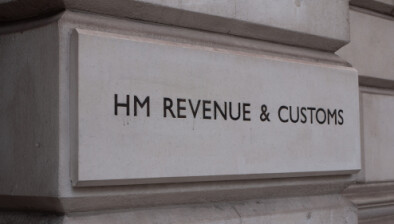Pinsent Masons warns of corporate criminal risk as nine firms face investigation
Nine businesses are being probed by HMRC for potential breaches of the new corporate criminal offence of failing to prevent the facilitation of tax evasion, with 21 other potential cases under criminal review.

Andrew Sackey, head of tax fraud investigations at Pinsent Masons
Tax experts at Pinsent Masons said that the figures should act as a wake-up call to Scottish businesses, regardless of size and business sector.
The investigations and cases under review cover UK businesses of all sizes and operating across 10 different sectors including financial services, oil, construction, labour provision and software development.
Andrew Sackey, head of tax fraud investigations at Pinsent Masons, said: “HMRC worked hard to get these new criminal powers and is determined to use them. This news should set alarm bells ringing for any businesses in Scotland which have so far put dealing with the corporate criminal offences to the bottom of their compliance to-do list.
“All parts of the Financial Services sector are clear targets for HMRC’s activities; however infrastructure, haulage, labour service providers and construction businesses also look particularly vulnerable to investigations under these rules because of their reliance on supply chains and sub-contractor networks.”
The corporate criminal offence rules were introduced in 2017, and make it a criminal offence if a business fails to prevent its employees or agents from facilitating tax evasion. A successful prosecution can result in an unlimited fine and a criminal record for a business, restricting its access to some regulated markets and ability to bid for government contracts in the UK and overseas.
Critically, corporate boards need not be aware of the conduct undertaken by their employees or subcontractors for an offence to have taken place. In addition, the company must be able to prove that they have adequate procedures in place to prevent the facilitation of tax evasion.
Mr Sackey continued: “This is very different to the risks previously faced and businesses in all sectors need to be asking themselves serious questions about whether they are at risk.
“In terms of detection and intervention rates, the corporate criminal offence is already a far bigger risk to businesses than the Bribery Act. HMRC teams are increasingly conducting tax evasion investigations as normal, using either civil or criminal powers, and then exploring whether there has been a facilitation by someone associated with a company and, if so, testing if the company has the right controls in place. This makes it simpler to identify, investigate and subsequently prosecute non-compliant businesses.
“The fact that HMRC has confirmed that it is applying this offence across 10 business sectors with very different operating models reveals that they are using the power to send the message that corporates everywhere need to revisit their understanding of the risk of facilitation.”
Mr Sackey advised that businesses need to quickly commit some time and resource to undertaking a risk assessment to determine their exposure to the offences if they haven’t already, and to review their controls to prevent the facilitation of tax evasion across their supply chain.
He concluded: “Businesses should conduct a review to check that procedures are as robust as they need to be, consulting with experts to ensure they’re incorporating appropriate measures – so that if HMRC does knock on its door, it can react quickly in seeking to demonstrate that it took reasonable, proportionate steps to prevent the facilitation.”






